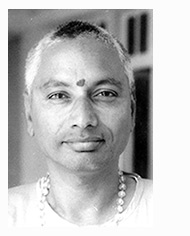

September 23, 2023
 How does the mind to become holy? If the mind becomes holy, who makes it holy? Does it make itself holy? How? Psychology is meant to find the answers. The psychology of yoga demands that we should directly understand the mind, not think about it. Thinking about thought will lead you nowhere. There is another method which is often recommended and which may be very useful in its own context. That is, never mind about this filth in the mind. Pour some good ideas into it and then this filth will go away.
How does the mind to become holy? If the mind becomes holy, who makes it holy? Does it make itself holy? How? Psychology is meant to find the answers. The psychology of yoga demands that we should directly understand the mind, not think about it. Thinking about thought will lead you nowhere. There is another method which is often recommended and which may be very useful in its own context. That is, never mind about this filth in the mind. Pour some good ideas into it and then this filth will go away.
I'm not discouraging this. Even Gurudev Swami Sivananda liked it very much, but there are some ‘ifs’ and 'buts'. If you pour a whole pint of milk into a filthy vessel, will the filth go away? No. What must you do? Look at it, see that 'This is filthy." Then you will know how to clean it. However since the mind is not material like dirt, the 'seeing' (awareness) itself is the cleaning.
The psychology of yoga demands that you should look at the mind, become aware of it — not think about it. Studying the states of the mind is also useless for our purposes. Instead is it possible for us to look directly at the mind and to become aware of it? That is the psychology of yoga.
Both the philosophy and the psychology must immediately manifest themselves in practice. If you are totally dedicated to wisdom (philosophy) and if you directly understand the mind (or directly become aware of it) then you are practicing yoga. It is not as though you must first understand the philosophy and psychology and then go somewhere and practice yoga. No. While you are doing this you are practicing yoga. The truth of yoga will manifest itself in your daily life if you are sincere, earnest and keen.
Though Swami Sivananda has left an enormous amount of literature for the transmission of the theory of yoga and Vedanta, he did not set great store by a theoretical or intellectual understanding of yoga or Vedanta if I close my eyes now, I can almost see and hear him emphasize: "Yoga and Vedanta must live in you. Your daily life must be vedanta." The difference is that if you're translating the yogic or vedantic doctrines in your daily life, you know that you are practicing yoga, you know that you are applying the principles of vedanta to your daily life. But if you are living yoga, if you are living vedanta, then you do not know. Others may discover that you are yogi or an enlightened person. That was what he wanted us to become.